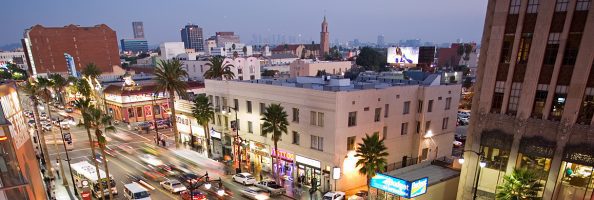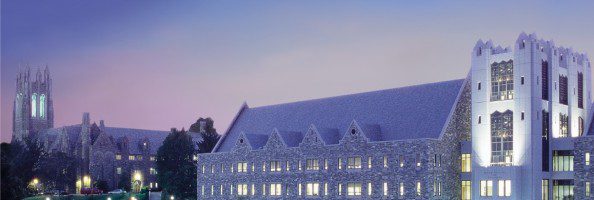Penn State Smeal Director of Admissions Answers 5 Burning MBA Questions

In our latest installment of the MetroMBA “5 Questions” series, we speak with Michael Waldhier, the Director of Admissions at Penn State University’s Smeal College of Business. Waldhier talks about the close-knit, collaborative community at Smeal, his alumni experience, and the many activities, clubs, and opportunities available for students. He also shares about the 150-year-old Penn State Berkey Creamery—excuse us while we go grab some ice cream!

Michael Waldhier, Director of Admissions at Penn State’s Smeal College of Business
1. What is the Smeal College of Business’ greatest asset and what do you wish MBA students knew more about?
“Rather than discussing our #1 ranking in supply chain management or the fact that Penn State has the largest active alumni network in the country, I honestly think our greatest asset is our class—specifically the individual, tightly-knit, collaborative atmosphere that exists in our MBA program. We only accept 60 students per year in the resident MBA program, which allows for an unparalleled amount of interaction within the cohort, and ensures that faculty and staff build strong, personal relationships with everyone in the class.”
2. What makes the Smeal College of Business a special place for you?
“In addition to being Director of Admissions, I am also an alum of the Smeal MBA program, and remain extremely close to most of my classmates and many of the professors who still teach in the program today. After graduation, I was fortunate to land a principal role in strategy consulting and had the wonderful opportunity to travel extensively over the course of my career. When it was time to transition to something new, returning to Penn State, to ‘Happy Valley,’ and to Smeal was an easy decision for my family to make. This program had an enormous positive impact on my life and set me on the path to success, and I can’t think of any better way to pay it forward to future generations of Smeal MBAs than to be where I am today.”
3. How would you describe the culture of the Smeal College of Business? Is it more collaborative or competitive?
“As mentioned, given the small size of our MBA community and the amount of teamwork that is required throughout the experience, our program is extremely collaborative, so much so that students often help each other to broaden networks, land internships and jobs, and even study for exams. We put a lot of emphasis upon collaboration and teamwork, and students will recognize each other for positive contributions to the program that are aligned with the Penn State Values of integrity, responsibility, excellence, respect, discovery, and, of course, community.”
4. How does Smeal help MBA students pursue their special interests?
“While the MBA program itself may be very small in size, Penn State University is one of the largest in the nation, and there are activities and special interest clubs and groups for virtually everyone. Within the MBA program, we have numerous clubs and associations for students to join such as the MBA Association, Consulting Club, Net Impact, Finance Association, Military and Veterans MBA Association, and more. In addition, students have access to courses across the university if they want to explore a topic outside of the core Finance, Marketing, Supply Chain, and Consulting concentrations. To that end, we have packaged optional programs of study in nearly 20 topic areas, with more being added each year. This allows students the flexibility to customize their MBA experience and pursue just the right mix of coursework to satisfy any career or personal interest.”
5. What is your favorite part of the Penn State campus?

“There are a plethora of wonderful hiking and biking trails in the mountains surrounding Penn State, but the Arboretum is a special place where one can walk through gardens inspired by cultures across the world and study or relax amidst fountains and koi ponds,” Waldhier says.
A lot of people will talk about the Penn State Berkey Creamery, which has been making ice cream for over 150 years, or Beaver Stadium, one of the largest college football stadiums in the United States, but one of my favorite places on campus is the Penn State Arboretum. There are a plethora of wonderful hiking and biking trails in the mountains surrounding Penn State, but the Arboretum is a special place where one can walk through gardens inspired by cultures across the world and study or relax amidst fountains and koi ponds. It also helps that it is right next door to the Smeal College of Business, so students frequently go there after class for team meetings or to relax and unwind after a stressful day.”
Chicago Business Schools Prepare Students For Future Careers in Nonprofits

According to the Chicago Tribune, Windy City nonprofits reported a surge in spending and staffing in recent years. An annual survey by the CBRE Group, one of the world’s largest real estate companies, showed that 35 percent of Chicago-area nonprofits planned on expanding staff or office space, up from 24 percent reported in 2011. Additionally, 20 percent reportedly planned on increasing advocacy and marketing budgets, outpacing national averages. Continue reading…
Funds Help McCombs MBA Students Pursue Social Impact

With the rising emphasis on social impact in recent years, it has become fairly common for MBA programs to prepare their students not just to do well in business but to also do good in the world, and students are on board with this shift in focus. Based on Net Impact’s 2014 “Business as UNusual” guide to graduate programs, 88 percent of surveyed MBA students reported that learning about social and environmental business is a priority.
At the UT Austin McCombs School of Business, peer-generated funds are supporting MBA students in exploring social impact as a career emphasis, starting during their first-year internship.
The Social Enterprise Fund
The Social Enterprise Fund was created by the full-time MBA Class of 2010 as a legacy gift. Its goal: to support first-year MBA students who are interested in working in social impact career fields such as sustainability, nonprofits and other nontraditional sectors.
As an expansion to the fund, the co-founders developed the McCombs’ Social Impact Internship Fund (SIIF), which provides first-year MBA students with financial support so they can explore internships in nonprofit and social impact organizations. These internships typically pay less than those in technology, consulting and financial services, but SIIF helps to offset some of the difference.
That help was especially welcome to Andrew Whiteman, MBA ‘17, who wanted to choose an internship without money driving his decision. He opted to intern with a clean energy startup in San Francisco where the pay was less, but the opportunity to do good was great.
“I was committed to working for a clean energy company and therefore did not recruit with big consulting firms or banks earlier in the semester,” Whiteman wrote in a blog. “With a cross-country move to one of the most expensive cities in the country, the SIIF stipend helped make sure I stayed above water during the summer.”
And, last year, the fund received a boost from SIIFs co-founders, which decided to increase support for students to make a bigger impact. Their goal was to strengthen McCombs’ emphasis on social impact as well as the recruitment of students to that area of work and study.
In the end, thanks to MBA ’17 students Tim Carreon, Silva Gentchev, Margo Hufstetler Gonzalez and Caitlin Goodrich—who co-founded the fund during the spring 2016 semester—and other McCombs’ alumni and faculty, the fund raised more than $33,000, increasing previous funding by more than 600 percent.
“The SIIF allowed me to explore employment at a company with a social impact mission without having to worry about how I was going to make it work financially,” said Teddy Boeddiker, MBA ’17, who interned with small footprint home company Kasita. “This is something that I believe many MBA students are interested in, but few can afford to accept a low-or no-income internship or job.”
McCombs MBA Students Pursue Social Impact
In a recent school blog entry, McCombs shared the internship experiences of MBA ’17 students Andrew Whiteman, Janet Thomassen, Eric Pressberg and Teddy Boeddiker: four students that benefited from the SIIF.
- Andrew Whiteman, MBA ‘17
Whiteman interned at Stem Inc, an energy startup in San Francisco that pairs intelligent controls with energy storage to increase energy cost savings and protect against changing rates. “Working at Stem was a thrilling experience,” said Whiteman, who worked on pricing solutions for the wholesale electricity markets.
“Electricity market participants often face unpredictable price swings and common hedging strategies can be quite costly,” he said. “My final product was a financial model that quantified the economic value in the marketplace, proposing an alternative solution to current hedging strategies.”
- Janet Thomassen, MBA ‘17
Thomassen took an internship in New York City with the social impact consulting firm, Inspiring Capital, which supports the social enterprise sector by connecting talented business professionals with high-potential and purpose-driven organizations. Her role was to work with Goodwill NY/NJ to assess the financial feasibility of a new document management service.
“The feasibility study led me to urge Goodwill not to pursue this additional business line due to a highly competitive market and unattractive long-term financial returns,” she said. “However, I shared lessons on how to think about the market opportunity, operational competencies, and financial considerations when assessing the viability of a new business line.”
- Eric Pressberg, MBA ‘17
Pressberg chose to intern with an environmental conservation nonprofit in Washington, D.C., the Nature Conservancy. As a summer associate, his role was to work with the conservation finance team to help the new aquaculture—fish farming—department.
“We were developing the strategy, [deciding] how to go about raising funds, the story to tell potential donors, and what type of projects we want to have—things like building a tool to decide if a project was worthy of investment, creating some of the PR documents to communicate with potential investors and donors and then actually designing the specific project, which was based in the Chesapeake Bay,” he shared.
- Teddy Boeddiker, MBA ‘17
Boeddiker stayed in Austin for his internship and worked with a small footprint home startup called Kasita. The company manufactures 320-square-foot homes for more affordable housing options. As an intern, Boeddiker spent his time fine-tuning the pitch deck to help the company gain additional funding.
“I spent most of my effort helping ‘Professor Dumpster’ [Jeff Wilson, CEO and co-founder of Kasita] fine-tune his pitch deck as he sought funding to grow the company,” he said. “He was pitching the company to experienced technical investors who expected more detailed information on financial projections and the market size.”
By offering funding and internship opportunities for their MBA students, McCombs has helped to alleviate some of the financial burden for students interested in social impact, and making it easier than ever to enter this particularly rewarding career area.
Top MBA Clubs in the Los Angeles Metro

If you’re seeking to round out your resume and to make lifelong connections during your MBA in Los Angeles, there are no shortage of options at your disposal. MBA clubs provide a great outlet for learning outside the classroom. The city is a fertile ground not only for those in the entertainment management field, but also in a wide variety of other specialties. Here is a look at some of the region’s top MBA student organizations.
St. Joseph’s University Haub School: Home to Renowned Center for Business Ethics

St. Joseph’s University’s Haub School of Business recently celebrated the 10th anniversary of the Pedro Arrupe Center for Business Ethics (Arrupe Center).
The Arrupe Center is widely recognized for its leadership in the development of theory and guidelines for ethical business practices.
The Best MBA Clubs in Boston

The right MBA program is as much an opportunity to learn the tools of your trade and find your niche as it is about building a professional peer and alumni network. There’s no more sure-fire method to sow the seeds that may sustain you (cue booming omniscient Wizard of Oz voice) FOR THE REST OF YOUR LIFE than within MBA clubs. We took a look at the best MBA clubs that Boston’s business schools had to offer. Continue reading…
